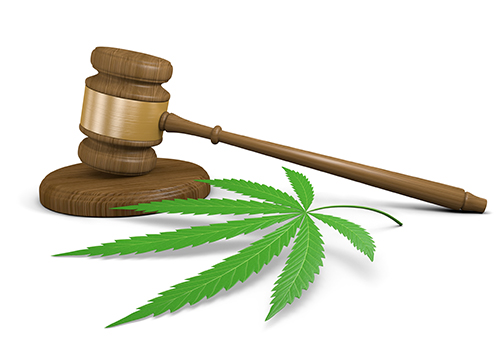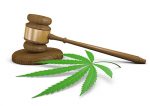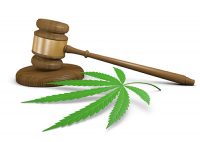Retired NFL player Rob Gronkowski, formerly of the New England Patriots, recently signed a deal with Abacus Health Products in Woonsocket, Rhode Island that includes buying a stake in the company and agreeing to promote its products. His decision reflects his belief that cannabidiol or “CBD” products made by the company under the brand CBDMEDIC can help others manage pain the way it has helped him.
Former world champion boxer Mike Tyson is developing a cannabis farm called “Cannabis Resort” for smokers and growers on his 40-acre land in California City. His company Tyson Holistic Holdings also owns Tyson Ranch, his own cannabis strain company and recently launched his CBD brand named CopperGel, which includes roll-on relief items.
Lifestyle maven Martha Stewart has entered into a deal with cannabis and CBD company Canopy Growth to be an adviser to the company. Her role will be to help it develop a new line of CBD-based products for both humans and animals.
Learn more about the direction of the cannabis industry at the 2019 Cannabis Quality Conference & Expo, which is co-located with the Food Safety Consortium Conference & Expo | October 1–3, 2019 | Schaumburg, IL The involvement of these and other celebrities in the emerging CBD industry signals an escalation in the evolution of cannabis as a legal consumer product. CBD products are sold today not only through licensed dispensaries and pharmacies, but also in specialty cafes, smoke shops, grocery stores and general retailers. This reflects the degree to which cannabis has become increasingly integrated into mainstream society.
Thirty-three states and the District of Columbia have legalized medical cannabis products, and 11 states plus D.C. have legalized cannabis for recreational use by adults. Affecting industries as diverse as cosmetics, food and beverage and pharmaceuticals, the exponentially expanding CBD market has generated analyses forecasting that the collective market for CBD sales in the United States will surpass $15–20 billion by 2025, according to the firms BDS Analytics, Arcview Market Research and Cowen & Co.
Yet, many government officials at the state and local levels, as well as industry members and consumers, justifiably question whether CBD products are legal. For example, in January 2019, New York City’s health department started prohibiting restaurants from adding any CBD supplement to food or drink, saying CBD was not approved by the federal government as a safe ingredient for human consumption. “The Health Department takes seriously its responsibility to protect New Yorkers’ health,” a spokeswoman said in a February 2019 email to media outlet CNBC. “Until cannabidiol (CBD) is deemed safe as a food additive, the Department is ordering restaurants not to offer products containing CBD.”
Is CBD legal in America? The answer is: “It’s complicated.”
The Details Behind CBD, Legalization and Marketing
CBD is the acronym for cannabidiol, a chemical compound found in cannabis plants—both hemp and marijuana. Unlike the chemical compound tetrahydrocannabinol (THC), which also is found in those plants, CBD does not induce a “high.”
The main difference between marijuana and hemp is the amount of THC in the plants. If the cannabis plant contains more than 0.3% of THC, federal law defines the plant as “marijuana.” Hemp is a cannabis plant with less than 0.3% of THC. While CBD produced from hemp often is sold as an oil, it actually is a chemical compound.
The Agricultural Improvement Act of 2018 (commonly known as the “2018 Farm Bill”) removed industrial hemp and hemp-derived CBD from Schedule 1 of the Controlled Substances Act. Thus, by legalizing the production of hemp, the 2018 Farm Bill removed hemp and hemp seeds from the schedule of Controlled Substances maintained by the federal Drug Enforcement Administration (DEA). That change effectively legalized hemp-derived CBD, which contains only trace amounts of THC, subject to federal agency health and safety regulations that govern all foods, beverages, supplements and other consumer products marketed in the United States. The new law also allows for increased research and product development of CBD extracted from hemp.
Not waiting for the regulators or scientists, enthusiastic entrepreneurs have produced extraordinary growth in the creation of markets for hemp CBD oil tinctures, topical creams, edibles, pet oil tinctures, vaping-liquids and a host of other consumer products purportedly containing CBD. The increase in CBD-related medical research, as well as the decreasing stigma surrounding CBD, has led to an industry boom, enticing celebrities and generating mass market growth for CBD products and sales.
According to predictive analysis and market research company Brightfield Group, $620 million worth of CBD products were sold last year in the United States. The same research team is projecting year-over-year CBD product sales growth in the United States of 706% in 2019 to reach approximately $5 billion, and sales of $23.7 billion by 2023.
Similarly, cannabis industry research firm BDS Analytics is predicting a compound annual growth rate of 49% by 2024 for all cannabis products across all distribution channels. The industry researchers also project that the CBD market, combined with other cannabis products, will create a total U.S. market of $45 billion for cannabinoids by 2024.
Another data group, New York-based Nielsen, estimates total sales of all legalized cannabis, which includes CBD products, reached $8 billion in the United States in 2018. According to Nielsen, U.S. cannabis sales should reach $41 billion by 2025, with marijuana products accounting for $35 billion, presuming 75% of the U.S. adult population has consistent access to legal marijuana by 2025.
In this context, there was only limited surprise in the marketplace when U.S. cannabis retailer Curaleaf Holdings Inc. disclosed in March 2019 that big-box retailer CVS Health Corp. will carry its line of CBD products. CVS, which is the largest drugstore chain by total sales in the United States, already has started to sell CBD products in eight states, including creams, sprays, roll-ons, lotions and salves.
Follow the link below to access page 2 of the article, which covers Regulatory Oversight and Emerging Enforcement.








